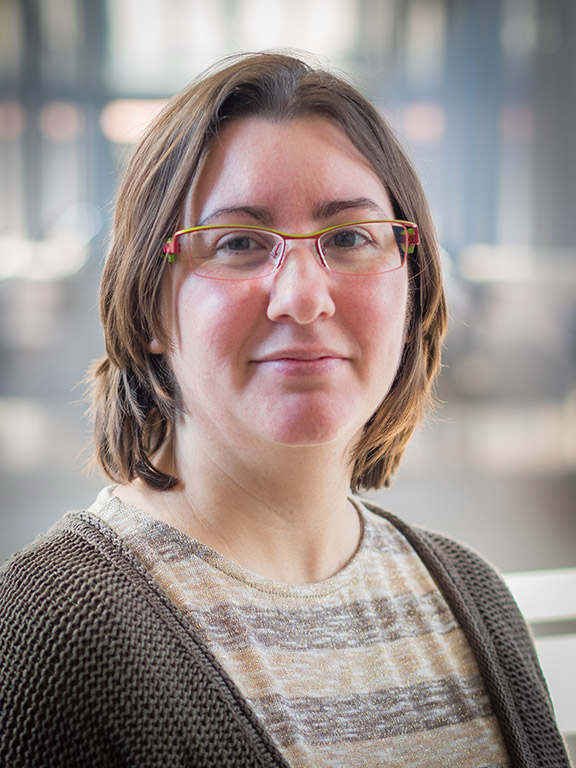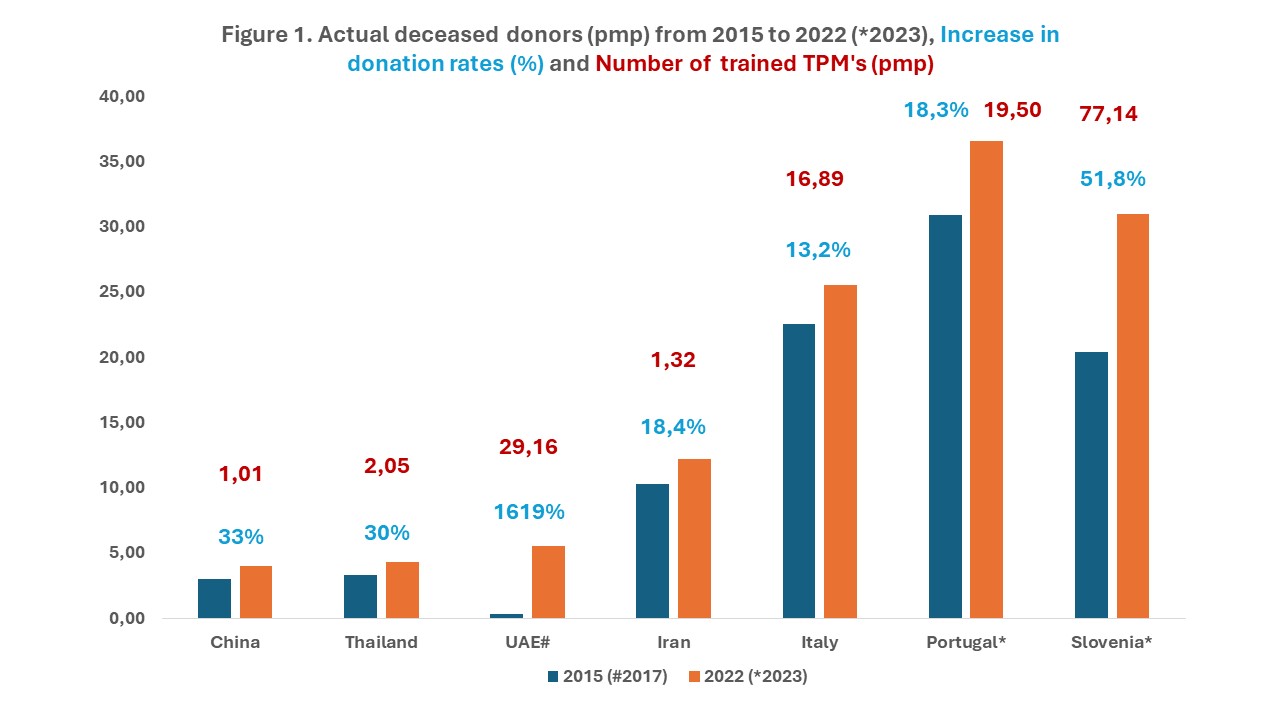
Bachelor of Arts in English Philology, 2001. Master’s degree in Translation and Localization, 2007
Head of educational programs at Donation & Transplantation Institute since 2022
Courses coordinator at Donation & Transplantation Institute (2008-2022)
Assistant of the educational TPM project (2004-2008)
I have been involved in the organization of more than 300 International courses as well as the Master in donation and transplantation of organs, tissues, and cells by the Universitat of Barcelona.
The impact of a continuous training program in deceased donation rates of different countries: Transplant procurement management (TPM) effect
Carmen Blanco1, Mauricio Galvão1,3, Brian Alvarez1, Chloë Ballesté1,2, Martí Manyalich1.
1Donation and Transplantation Institute, Barcelona, Spain; 2Medical School, University of Barcelona, Barcelona, Spain; 3Medical School, Potiguar University, Natal, Brazil
Background: The educational project called Transplant Procurement Management (TPM) was launched in 1991 as a specialized program which main goal is to train health professionals in the field of organ donation for transplantation. Since then, 406 courses have been developed in 48 countries training 16355 health care professionals. The objective is to analyze the impact of the training on donation rates in those countries where the TPM training has been developed nationally as part of a continuous professional development plan.
Methods: TPM offer is organized by levels (introductory, intermediate, advanced) and training modalities (face-to-face, online, blended), with a result of tailored-made courses according to each country needs. Its core program goes through the clinical process of donation for transplantation and its methodology combines theoretical sessions with hands-on workshops by simulations and case discussions. Special attention is given to innovative tools: for donor detection workshop, a videogame provides practice on how to detect and evaluate donors in a virtual hospital; to practice communication of bad news and family interview, an immersive experience with virtual reality has been designed. The impact of the training has been measured through a retrospective study that includes the organ donation rates published in IRODaT during the period 2015-2022 (*2023) in 7 countries and the number of students registered in our database per million population (pmp).
Results: In the studied period, the number of trained (pmp), in these countries has been as follows: China, 1,01; Iran, 1,32; Italy, 16,89; Portugal*, 19,50; Slovenia*, 77,14; Thailand, 2,05; UAE, 29,16. The donation rates in all countries have increased during the period 2015-2022 (* 2023). In the group of countries with donation rates of less than 10 donors/pmp, the TPM effect was higher, as in China, 33%, Thailand 30%, and UAE, 1619%. Despite being smaller, there were also significant increases in donation rates in the group of countries with more than 10 or 20 donors/pmp, such as Iran, 18,4%, Italy, 13,2%, Portugal*, 18,3% and Slovenia*, 51,8%. Furthermore, in both groups the country that trained the most health professionals had the greatest increase in donation rates (UAE: trained/pmp=29,16 / donation increase=1619%) and Slovenia: trained/pmp=77,14 / donation increase=51,8%) (Figure 1).

Conclusions: An increment of the donation rates has been demonstrated in all countries of the study being higher in those countries with lower initial rates. Therefore, TPM courses have been proven effective in those countries with a national strategy to increase donation activity that includes education. Education is, among other factors, crucial in the development of donation and transplantation systems at a regional or national level. Throughout these 30 years, TPM has contributed to the professionalization of health professionals involved in this development and will keep on this endeavour.
